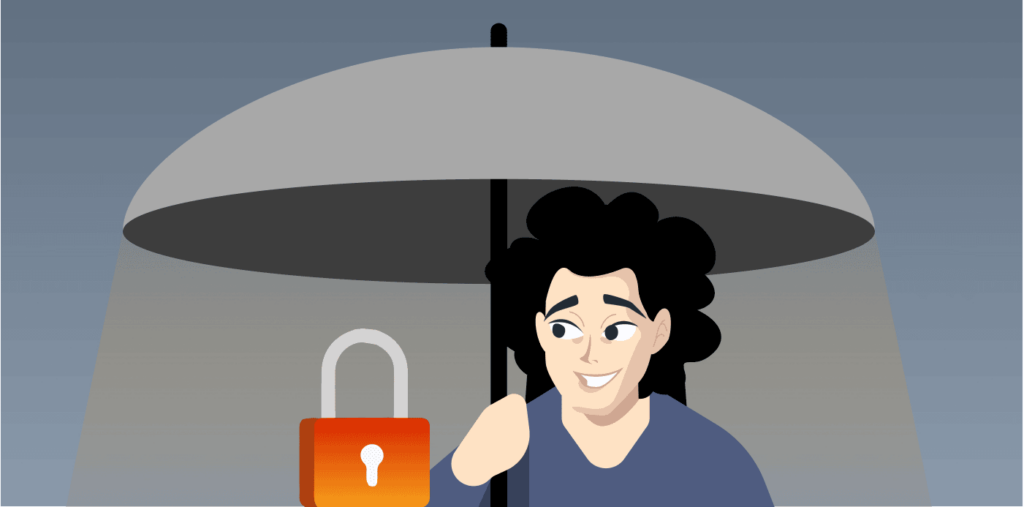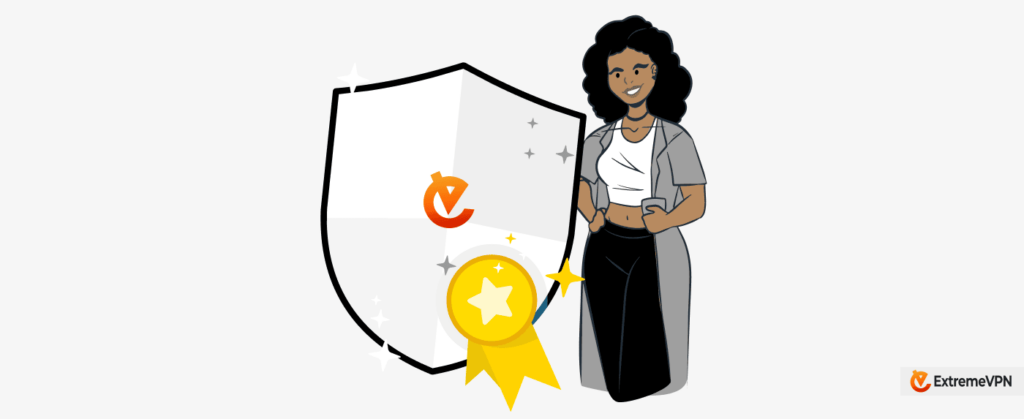Countries have formed alliances to keep an eye on what people do online. The Five Eyes Alliance is the most well-known group that shares this data between its member countries. This is done particularly for the greater good of national security and global intelligence coordination. However, it raises privacy concerns for the citizens.
This article explores the intricacies of these partnerships and their implications. Learn how a VPN becomes your ally in the quest for a secure and private online experience. Let’s get started.
What are the 5 Eyes, 9 Eyes, and 14 Eyes Alliances?
The 5 Eyes Alliance
The Five Eyes alliance is the oldest and most significant global sharing agreement. It was created post-World War II when the United Kingdom and the United States collaborated to intercept Soviet activities and share intelligence. This alliance includes five countries: the UK, the US, Canada, Australia, and New Zealand.
For many years, the 5 Eyes alliance remained a secret and was discovered in 2005 when it became a recognized and acknowledged entity. You can get an idea of the alliance’s secrecy level from the fact that the Australian Prime Minister remained unaware of it until 1973, although Australia joined the UKUSA agreement in 1995.
The alliance’s goal has consistently been the collaborative sharing of foreign intelligence that they aquire through signal interception, commonly called signals intelligence (SIGINT).
This data comprises of electronic intelligence and communications that usually come through signals from radar systems and missile installations. The scope of communications within SIGINT has significantly evolved since the Cold War era. It spans a broad spectrum, from texts and traditional phone calls to internet search records and emails.
Each country has a distinct stance on monitoring online activities and collecting data. While there are agreements in place prohibiting 5 Eyes countries from spying on their citizens, the revelations brought by Edward Snowden in 2013 described the nature of this practice.
Online Monitoring by the 5 Eyes Countries
The discreet features of the 5 Eyes alliance raise concerns about the need for more oversight regarding legal compliance. The EFF (Electronic Frontier Foundation) warns that when these 5 countries work together, they might all follow the weakest privacy rules — putting everyone’s privacy at risk.
United States
The National Security Agency (NSA) collects intelligence signals in the United States. It operates under the authority of the reauthorized Patriot Act. According to this legislation, the NSA can spy on Americans’ online browsing and search histories, even without a warrant.
The NSA conducted a surveillance program (PRISM) that aims to gather data from U.S. companies. PRISM is a program that uses XKeyscore, an NSA database disclosed by Edward Snowden.
United Kingdom
The Government Communications Headquarters (GCHQ) collects signals intelligence (SIGINT) in the UK. The Investigatory Powers Act 2016, commonly called the Snoopers’ Charter, allows GCHQ to seize data without needing a warrant.
Additionally, these providers are mandated to collect and preserve metadata for a year. In May 2021, the European Court of Human Rights ruled that GCHQ had infringed upon the right to privacy.
Canada
In Canada, SIGINT is managed by the Communications Security Establishment (CSE). While the CSE’s mandate restricts international targeting of private communications belonging to Canadians, the lawful collection of metadata, which is not deemed private, is allowed.
Instances have occurred in which CSE inadvertently gathered data on its citizens. The identities of untargeted Canadians are hidden before intelligence is shared. Despite Canada’s participation in the coalition, the CSE has refuted assertions that Canada has connections to PRISM.
Australia
In Australia, it is made compulsory for service providers to store data associated with their services for at least two years. Although preserving communication content is not mandatory, providers may be required to keep and disclose details about the communication’s origin, date, time, and destination.
Furthermore, Australia has recently introduced a hacking bill that allows law enforcement to monitor individuals when they use their online devices and accounts.
New Zealand
The Government Communications Security Bureau (GCSB) is the SIGINT agency in New Zealand. However, the Intelligence and Security Act 2017 prohibits the GCSB from collecting information on citizens, unless they have a warrant, as it is compulsory to get communications data, including content and metadata.
Interestingly, the revelations from the Snowden documents have challenged government denials, revealing that the GCSB actively established a comprehensive metadata surveillance system from 2012 to 2013.
The Nine Eyes Alliance
The 9 Eyes alliance comprises of the previous 5 Eyes collaboration, along with 4 others, including Denmark, France, the Netherlands, and Norway.
These nations have formed an intelligence-sharing partnership to enhance their collective surveillance capabilities. The 9 Eyes Alliance aims to address and counter terrorism and other security threats collectively.
The Fourteen Eyes Alliance
The Fourteen Eyes alliance brings together 14 countries. Initially stemming from the Nine Eyes agreement, it also includes Germany, Belgium, Italy, Spain, and Sweden, expanding their commitment through a series of agreements to enhance intelligence sharing.
The Five Eyes, Nine Eyes, and Fourteen Eyes enhance the exchange of intelligence among member nations, contributing to national security and counter-terrorism efforts. Nevertheless, these alliances face criticism for potential privacy and civil liberties violations and transparency and accountability concerns.
Member countries acquire data through monitoring online activities, using ISPs and other trackers, and engaging in phone tapping.
The Dangers of Global Intelligence Alliances

Below are some of the dangers of the 5 Eyes, 9 Eyes, and 14 Eyes Alliances:
Proxy Surveillance and Legal Loopholes
The potential for countries to monitor their citizens’ activities is one of the most concerning aspects of these alliances. The alliance provides them with power. For instance, it might be legally restricted for a country like the United Kingdom to spy on its people.
However, the collaboration with other countries allows it to overcome such restrictions, such as the United Kingdom might seek assistance from the United States, a fellow member of the Five Eyes alliance, to carry out surveillance activities.
Global Internet Coverage
The expansive reach of the 5 Eyes, 9 Eyes, and 14 Eyes covers many of the world’s internet users. As online literacy increases across countries, there is a growing inclination to join the 14 Eyes alliance.
This inclination raises essential questions about our trajectory—are we moving toward a world dominated by pervasive surveillance?
What Citizens Should Know?

If you live in any of the countries mentioned in the alliances, you can’t achieve online anonymity; unfortunately, it is nearly impossible. This is because the agencies trace your online activities, including the websites you visit, your online activity duration, search engine inputs, personal details, and IP address.
Since we now understand the involvement of the Five Eyes Alliance and its counterparts in various surveillance initiatives, the scope of intelligence gathering is still being determined, and the potential for intrusive surveillance remains a pressing issue.
Information gathered by the Five Eyes intelligence may be stored indefinitely, exposing you to the risk of government scrutiny based on your search history.
How 5/9/14 Eyes Alliances Affect Our Personal Privacy

The popular perception is that these alliances only monitor prominent figures (bureaucrats, politicians, etc). However, the reality is far beyond this — they extend their influence to everybody. This involves residents of member states, particularly those who like to explore the vast internet landscape.
The 5/9/14 Eyes states are global technology leaders, and they host many cybersecurity businesses, including providers of VPN services and developers of secure messaging applications. Unfortunately, the governments of these nations often put pressure on such businesses to store user data and disclose customer information.
An alarming trend is that governments are increasingly demanding access to user data, and the U.S. led the way in 2020 with the most requests sent to tech companies. This practice raises significant privacy concerns as businesses within these alliances may find themselves compelled to compromise user privacy under the weight of governmental demands.
How Surveillance Laws Affect VPN Users
Everyone wants online privacy, but it’s hard to get. Thus, many people find VPNs helpful, with 40% being used for privacy reasons. However, the involvement of the 5/9/14 eyes alliances adds complexity to the need for online anonymity. Let’s discuss some VPN terms first so we can better understand how all of this works:
- VPN Jurisdiction: It is the legal base of a VPN provider. Many providers choose a jurisdiction outside their country of residence so that they can deal with the oversight of relevant authorities.
- VPN Provider Location: The physical location of the VPN business may differ from where the company maintains its VPN servers.
- VPN Server Location: Where a VPN provider has its servers. This usually covers multiple global locations to provide users with diverse choices.
Let’s break it down. Consider a VPN provider, X, operating under the US jurisdiction. If US authorities request user data for specific reasons, the company must follow. Likewise, countries like Denmark, despite being part of the EU with GDPR standards, are bound to share electronic data with other 9 Eyes member nations when required.
ExtremeVPN is a robust VPN service based in the British Virgin Islands, a privacy-friendly jurisdiction outside the 5/9/14 Eyes alliances. We have a strict no-logs policy, meaning we don’t collect or store any user data. Even if authorities request information, we simply have nothing to share. Your privacy is fully protected with us.
The Role of VPNs in Safeguarding Against the 5 Eyes Alliance

A VPN hides your online activities by rerouting your data through encrypted servers, unlike the commercial ones operated by your ISP. This strategic move ensures that no one can intercept your traffic; if someone does, all they will get is gibberish data.
It is worth mentioning that VPNs are entirely legal in all Five Eyes nations. Using a top-tier VPN service like ExtremeVPN offers you bonuses like:
Secure Online Presence
ExtremeVPN goes the extra mile by encrypting your IP address and ensures that all your online activities remain untraceable. Our VPN service uses state-of-the-art encryption (AES-256) along with fast protocols such as WireGuard.
Multi-device Compatibility
The ExtremeVPN app is versatile. It allows you to connect up to 10 devices, including smartphones, laptops, PCs, and smart TVs. Just activate it and instantly encrypt all your internet interactions.
Additional Security Features
ExtremeVPN is a comprehensive security solution. We have fast VPN servers in over 78 countries worldwide. Plus, our VPN kill switch ensures that you never get traced online — it cuts your internet connection anytime your VPN disconnects. Plus, with our Split Tunelling feature, you can decide which traffic you want to pass through the VPN and which through a usual internet connection.
This innovative addition enhances your online security posture, offering peace of mind.
By choosing ExtremeVPN, you can enjoy unlimited online protection. As our valued user, you get special features designed to enhance your online experience.